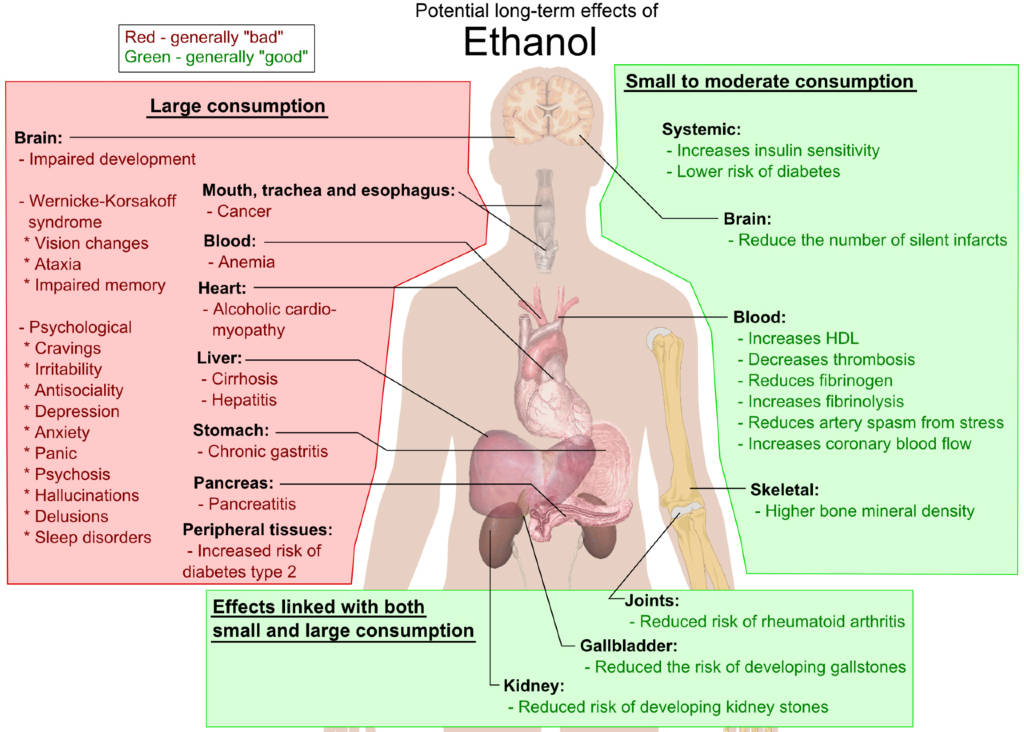The WHO has emphasized on the development, implementation and evaluation of cost-effective interventions for harmful use of alcohol as well as creating, compiling and disseminating scientific information on alcohol use and dependence, and related health and social consequences.
The “Global strategy to reduce the harmful use of alcohol”, negotiated and agreed by WHO Member States in 2010, represents the international consensus that reducing the harmful use of alcohol and its associated health and social burden is a public health priority.
The strategy provides guidance for action at all levels, including 10 recommended target areas for policy options and interventions for national action to reduce the harmful use of alcohol and the main components for global action to support and complement activities at country level.
According to a report by the WHO Per capita alcohol consumption in India has more than doubled from 2005 to 2016, In India, the consumption of alcohol has increased from 2.4 litres in 2005 to 5.7 litres in 2016 with 4.2 litres being consumed by men and 1.5 litres by women, it said.
The total alcohol per capita consumption (15+ years) is expected to increase in half of the WHO regions by 2025 and the highest increase is expected in the South-East Asia Region.
An increase of 2.2 litres is expected in India alone which represents a large proportion of the total population in this region, the report highlighted.
However, increases, although smaller, are also expected in Indonesia and Thailand (with the second- and fourth-largest largest populations).
The second-highest increase is projected for the populations of the Western Pacific Region, where the population of China is the largest, with an increase in per capita consumption of 0.9 litres of pure alcohol by 2025.
Total alcohol per capita consumption has increased globally after a relatively stable phase between 2000 and 2005.
Since then, total per capita consumption rose from 5.5 litres in 2005 to 6.4 litres in 2010 and was still at the level of 6.4 litres in 2016, the report stated.
However, diverging trends were noticed in different regions of the world.
The harmful use of alcohol is one of the leading risk factors for population health worldwide and has a direct impact on many health-related targets of the Sustainable Development Goals (SDGs), including those for maternal and child health, infectious diseases (HIV, viral hepatitis, tuberculosis), noncommunicable diseases and mental health, injuries and poisonings.

In 2016, the harmful use of alcohol resulted in some 3 million deaths (5.3 per cent of all deaths) worldwide and 132.6 million disability-adjusted life years (DALYs). Mortality resulting from alcohol consumption is higher than that caused by diseases such as tuberculosis, HIV/AIDS and diabetes.
Among men in 2016, an estimated 2.3 million deaths and 106.5 million DALYs were attributable to the consumption of alcohol. 0.7 million women died and they experienced 26.1 million DALYs attributable to alcohol consumption.
The harmful use of alcohol is a causal factor in more than 200 diseases and injury conditions, the report stated.
Some 2.3 billion people are current drinkers. Globally more than a quarter (26.5 per cent) of all 1519 year-olds are current drinkers, amounting to 155 million adolescents.









